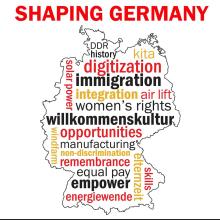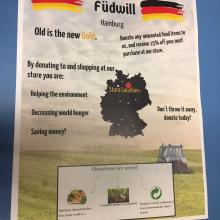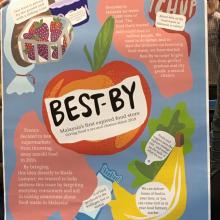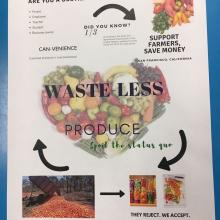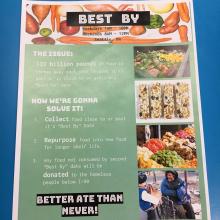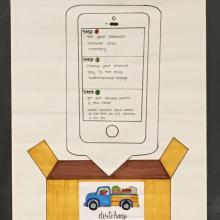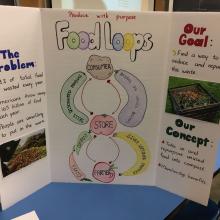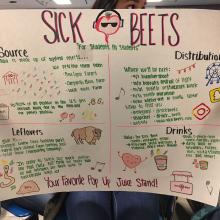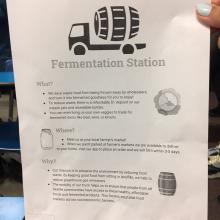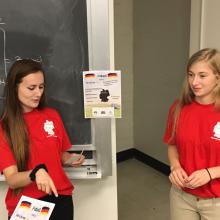Eliminating Food Waste: Ideas for Sustainable Grocery Stores
After reading Kafka’s Hunger Artist and watching Valentin Thurn’s documentary Taste the Waste, students created their first projects for Professor Sabine Wilke’s “Diversity in the Anthropocene” class. The students were particularly moved by the documentary and the high amount of food waste that is thrown away on farms and in grocery stores due to our aesthetic standards as well as legal regulations regarding expiration dates. Inspired by the emergence of stores that sell expired but still edible food items in Germany and other European countries, student teams developed their own concepts for stores that helped reduce food waste and promoted more sustainable values of consumption.
Team 1: The group’s store “Füdwill” is located in Hamburg and collects unwanted food items from costumers. Food that is still edible will be resold in their shop, while unsuitable products will be given as compost to local farmers.
Team 2: After doing extensive research on the food waste problem in Asia, the group developed their store “Best-by” in Kuala Lumpur, Malaysia. Their store will be the first business in Malaysia that sells expired but still edible food items.
Team 3: Inspired by the enormous amounts of food that is rejected on farms, the team created “Waste-less Produce” based in the San Francisco bay area. The business sells these rejected fruits and vegetables, already cut and sliced in convenient cans and jars.
Team 4: The team’s store “Best-by” in Seattle collects rejected and expired food items that they repurpose into new food products with a longer shelf life. Food that is not sold by their second expiration date, but is still edible, will be given for free to the homeless people in the area.
Team 5: The group created the app “dirtcheap” that will deliver seasonal produce that was rejected from local farms in the greater Seattle area to customers’ doorstep.
Team 6: The group’s store “Food Loops” is located in Western Washington and functions as the liaison between customers and farmers. Their business sells donated but still edible food from customers and local farms, while returning unsuitable food as compost to the farmers.
Team 7: Their pop-up store “Sick Beets” sells rejected produce as smoothies at local events such as marathons and concerts in the greater Seattle area.
Team 8: The group’s food truck “Fermentation Station” sells donated food waste from grocery stores in form of newly repurposed fermented foods such as jams and pickled vegetables. The food truck stops at local farmer’s markets in Seattle.
Here is the link to the second project of the Diversity in the Anthropocene class:
https://german.washington.edu/research/undergraduate/project-2-diversit…
